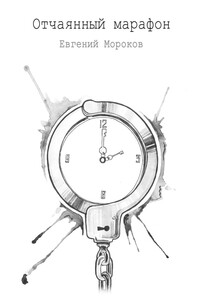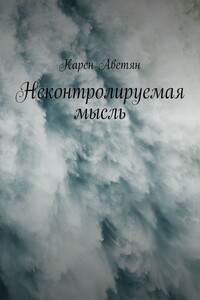36 Arguments for the Existence of God - [17]
Cass had been surprised by Mona’s severity toward Lucinda, especially since he had heard Mona complaining that people don’t let women academics get away with the kind of high-handedness that their male counterparts habitually employ. He would have thought Mona would be the first to applaud Lucinda for her ballsiness.
Cass had barely been on campus fall semester. He’d taken a leave of absence because of the extensive book tour the publisher had set up for him: twenty-one cities in two months, and then another month spent in England, Scotland, and Ireland. He’d kept in touch through sporadic e-mail with Mona, who tried mindfully to keep the communications focused on him, “who, after all, is the only one of the two of us who’s suddenly leading the life of Cindefuckingrella.”
He had returned from London only a few days before. He was coming to campus now to gather any mail that might have accumulated. It was the Wednesday before Thanksgiving, and it was already evening, and the campus was deserted except for a few foreign students forlornly clumping here and there, their footsteps echoing with melancholia on the abandoned Frankfurter concrete. The moodiness of an early evening in late November softened the hard outlines of the aggressive architecture. The bluing air was crisped and smoke-sweetened, and the leaves crunched gratifyingly under his feet as he walked up the dirt path from the faculty parking lot that was closest to the Katzenbaum Brain and Cognitive Sciences Center.
The Katzenbaum Center was built in the style that prevailed on Frankfurter’s campus, meaning that it was a rectilinear, flat-roofed building, made of red brick with an exposed steel structure, a large show of glass, and a generous helping of concrete, which was stained red to match the bricks. The campus went heavy on the concrete. This, Cass had been told, was the International Style of architecture, which had been considered boldly cutting-edge after the Second World War, when Frankfurter had been established, its Master Building Plan embarked upon. To Cass it looked like the style of architecture favored by the wealthy Reform temples and Jewish community centers of northern New Jersey, where he had grown up. He associated this architecture less with Le Corbusier than with Hadassah. The founders of the school, together with the money they had raised, had been Jewish, and the school, though non-denominational, still attracted a disproportionate number of Jewish students.
Cass was just opening the heavy glass door when Lucinda materialized on the other side of it. She had taken the stairs down from her sixth-floor office rather than using the elevator. He saw the dark figure swiftly descending, almost a blur of motion, though he hadn’t realized that it was she. Why would he have realized, when a hundred times a day he had seen her superimposed on his surroundings?
The vision of Lucinda was always whisper-close, her phantom elbow ready to poke him playfully in the ribs. She had stood beside him on a sidewalk in Portland, Oregon, staring up at his illuminated name on the marquis of a big old opera house that he would be speaking in that night, both of them shaking their heads at the incongruity. She had walked the moonlit fog in London, floated by his side in fabled Oxford, teased him about his debate with Sir Jonathan Sacks, the Chief Rabbi of Great Britain, at London’s Jewish Book Festival, on reason and faith. So why wouldn’t he see her now, approaching him across the sterile vestibule of Katzenbaum, as he stood there holding the door wide open for whoever it really was?
She must have felt the cool, crisp air sweeping in. She looked up at the man standing there holding the door for her, his head tilted to one side and a loopy smile wobbling about on his pleasantly discomfited face.
He expected that she wouldn’t recognize him. He would simply smile at her without saying a word, as he held the door so that she could pass him by and disappear into the darkening world.
Lucinda looked up into his face, did a double take, and then burst out laughing.
“What?” he said. He could feel his embarrassingly responsive complexion beginning a slow burn. He had said nothing, and already she was laughing at him.
Without a word, she reached into her satchel and pulled out the familiar book, with its laminated foil jacket. It was a jolt of intimacy to see his progeny emerging from out of her bag.
“I’m not very good with faces, but I’d be willing to bet good money that you’re the author of this book. Wait a minute.” She opened the back flap and held the picture side by side against the original, the soft cuff of her winter coat slightly caressing his blazing cheek. “Yes. Don’t deny it. You penned this tome. You’re Cass Seltzer!”
“You’re reading it.”
“Not really. I’ve simply incorporated it into my weight-lifting regimen.”
“That’s why I added all those extra arguments for God’s existence. The publisher was supposed to mention its physical-training possibilities on the back cover.”

Помните ли вы свой предыдущий год? Как сильно он изменил ваш мир? И могут ли 365 дней разрушить все ваши планы на жизнь? В сборнике «Отчаянный марафон» главный герой Максим Маркин переживает год, который кардинально изменит его взгляды на жизнь, любовь, смерть и дружбу. Восемь самобытных рассказов, связанных между собой не только течением времени, но и неподдельными эмоциями. Каждая история привлекает своей откровенностью, показывая иной взгляд на жизненные ситуации.

Семья — это целый мир, о котором можно слагать мифы, легенды и предания. И вот в одной семье стали появляться на свет невиданные дети. Один за одним. И все — мальчики. Автор на протяжении 15 лет вел дневник наблюдений за этой ячейкой общества. Результатом стал самодлящийся эпос, в котором быль органично переплетается с выдумкой.

Действие романа классика нидерландской литературы В. Ф. Херманса (1921–1995) происходит в мае 1940 г., в первые дни после нападения гитлеровской Германии на Нидерланды. Главный герой – прокурор, его мать – знаменитая оперная певица, брат – художник. С нападением Германии их прежней богемной жизни приходит конец. На совести героя преступление: нечаянное убийство еврейской девочки, бежавшей из Германии и вынужденной скрываться. Благодаря детективной подоплеке книга отличается напряженностью действия, сочетающейся с философскими раздумьями автора.

Жизнь Полины была похожа на сказку: обожаемая работа, родители, любимый мужчина. Но однажды всё рухнуло… Доведенная до отчаяния Полина знакомится на крыше многоэтажки со странным парнем Петей. Он работает в супермаркете, а в свободное время ходит по крышам, уговаривая девушек не совершать страшный поступок. Петя говорит, что земная жизнь временна, и жить нужно так, словно тебе дали роль в театре. Полина восхищается его хладнокровием, но она даже не представляет, кем на самом деле является Петя.

«Неконтролируемая мысль» — это сборник стихотворений и поэм о бытие, жизни и окружающем мире, содержащий в себе 51 поэтическое произведение. В каждом стихотворении заложена частица автора, которая очень точно передает состояние его души в момент написания конкретного стихотворения. Стихотворение — зеркало души, поэтому каждая его строка даёт читателю возможность понять душевное состояние поэта.

О чем этот роман? Казалось бы, это двенадцать не связанных друг с другом рассказов. Или что-то их все же объединяет? Что нас всех объединяет? Нас, русских. Водка? Кровь? Любовь! Вот, что нас всех объединяет. Несмотря на все ужасы, которые происходили в прошлом и, несомненно, произойдут в будущем. И сквозь века и сквозь столетия, одна женщина, певица поет нам эту песню. Я чувствую любовь! Поет она. И значит, любовь есть. Ты чувствуешь любовь, читатель?